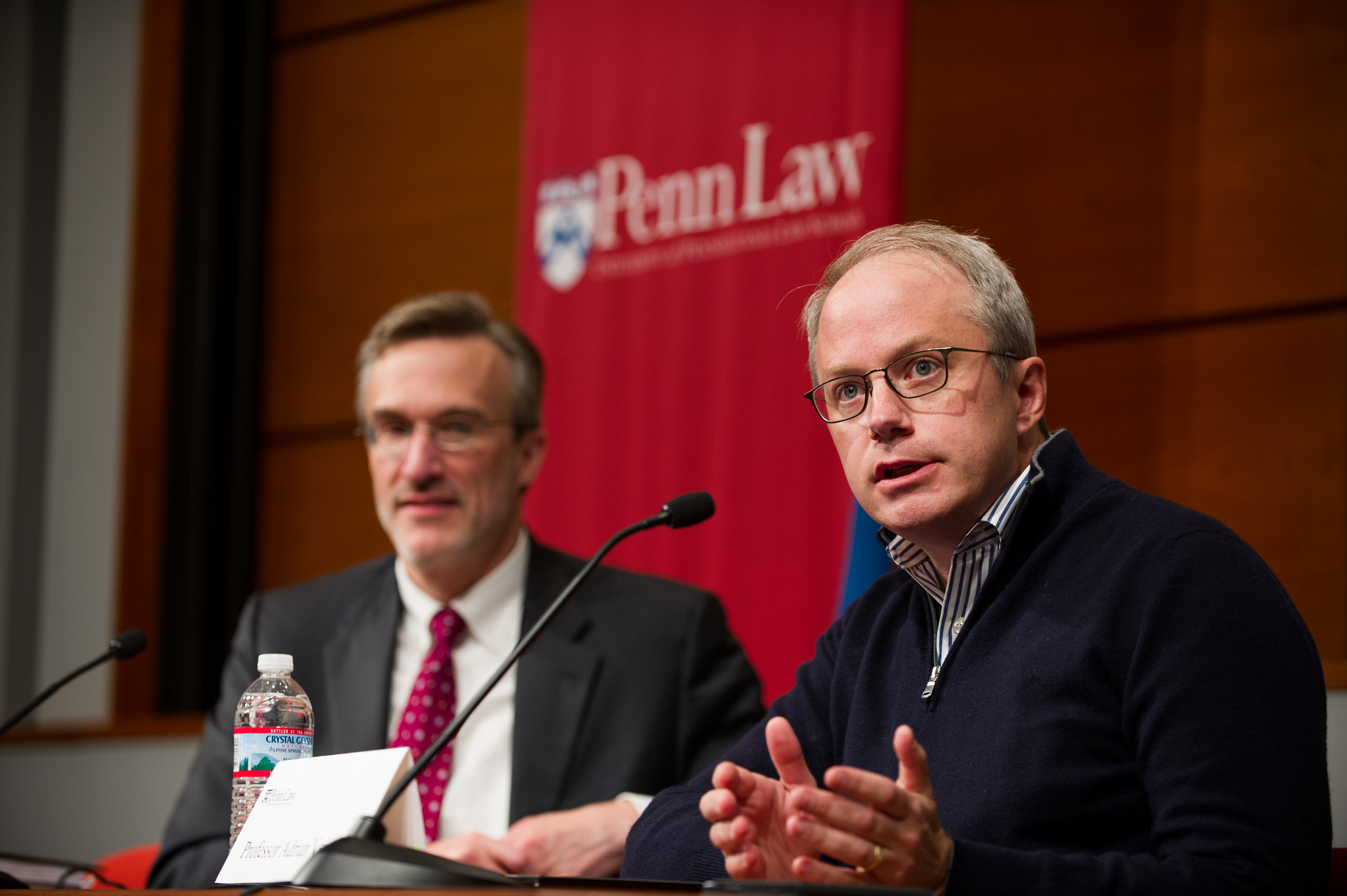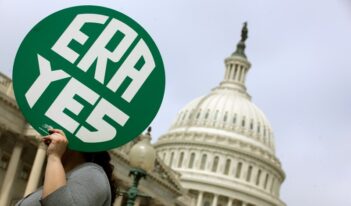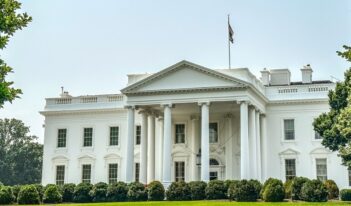
Adrian Vermeule’s closing remarks highlight the role of conventions in limiting the exercise of executive power.
“Are there limits to the exercise of executive discretion over executive matters, and if so, what are they?” This question was the motivating force behind the 2015 University of Pennsylvania Law Review Symposium, which featured innovative work by some of the nation’s foremost legal scholars. The Symposium challenged participants to think critically about the boundaries of executive power in the regulatory state and, as Adrian Vermeule noted in his concluding remarks, the Symposium’s presenters rose to the challenge.
Vermeule, who is the John H. Watson Professor of Law at Harvard Law School, began his concluding remarks by praising the high caliber and diverse nature of the scholarship presented at the Symposium. He stressed the importance of having nuanced conversations about the limits of executive discretion and argued that these discussions must move beyond a view of executive boundaries that focuses only on legal and political forces. There is, according to Vermeule, a third constraint on executive power: conventions.
Conventions are unwritten rules of the political game that are widely observed and followed from a sense of obligation. They flow from a sense of normative obligation that may be “thin” or “thick,” according to Vermeule. When conventions arise out of a thin sense of obligation, actors follow them out of a fear of public backlash or retaliation by an opposing political party. Constraints of this nature are prone to breaking down when new actors come on the scene. For example, with an influx into the Republican party of what Vermeule called an “insurgent element” – a group that does not want to play by the rules and has little interest in long-term reciprocal collaboration – conventions that used to constrain the exercise of senatorial power appear to be fading.
Conventions stemming from obligation in the thicker sense are likely to be more durable, Vermeule observed. They tend to be internalized – followed not only to avoid trouble, but out of a sense that the convention reflects the way things ought to be done. Vermeule cited conventions around agency independence as an example of how thicker obligations can influence executive decisions about the appointment and removal of certain agency heads. What happens when conventions – particularly conventions related to the president’s appointment and removal powers – are violated? Vermeule pointed to the uproar that occurred when George W. Bush discharged several U.S. Attorneys in 2006. Since U.S. Attorneys have no tenure protection, it was within Bush’s discretion to discharge them as a formal, legal matter. Yet his actions were widely perceived to violate the independence of the Attorney’s Office, and he was subject to criticism from both sides of the aisle and from the public. The intensity of this reaction, Vermeule argued, is best understood not by looking at legal constraints (there were none) or political constraints (this was not a case of partisan maneuvering), but by reference to the role of convention in determining what the executive can and cannot do.
Vermeule wrapped up his commentary with a call to deeper understanding. Conventions, he noted, are often overlooked and under-examined. Particularly when grounded in a thick sense of obligation, they may be so deeply ingrained that they are not even recognized by their adherents. This, Vermeule argued, makes it all the more important to pay attention to their role in setting and enforcing the boundaries of executive discretion.
This essay is part of The Regulatory Review’s ten-part series, The Bounds of Executive Discretion in the Regulatory State.
The recent Symposium was co-sponsored by the Penn Program on Regulation (PPR) and organized by Penn Law professors Cary Coglianese, director of PPR, and Christopher Yoo.



